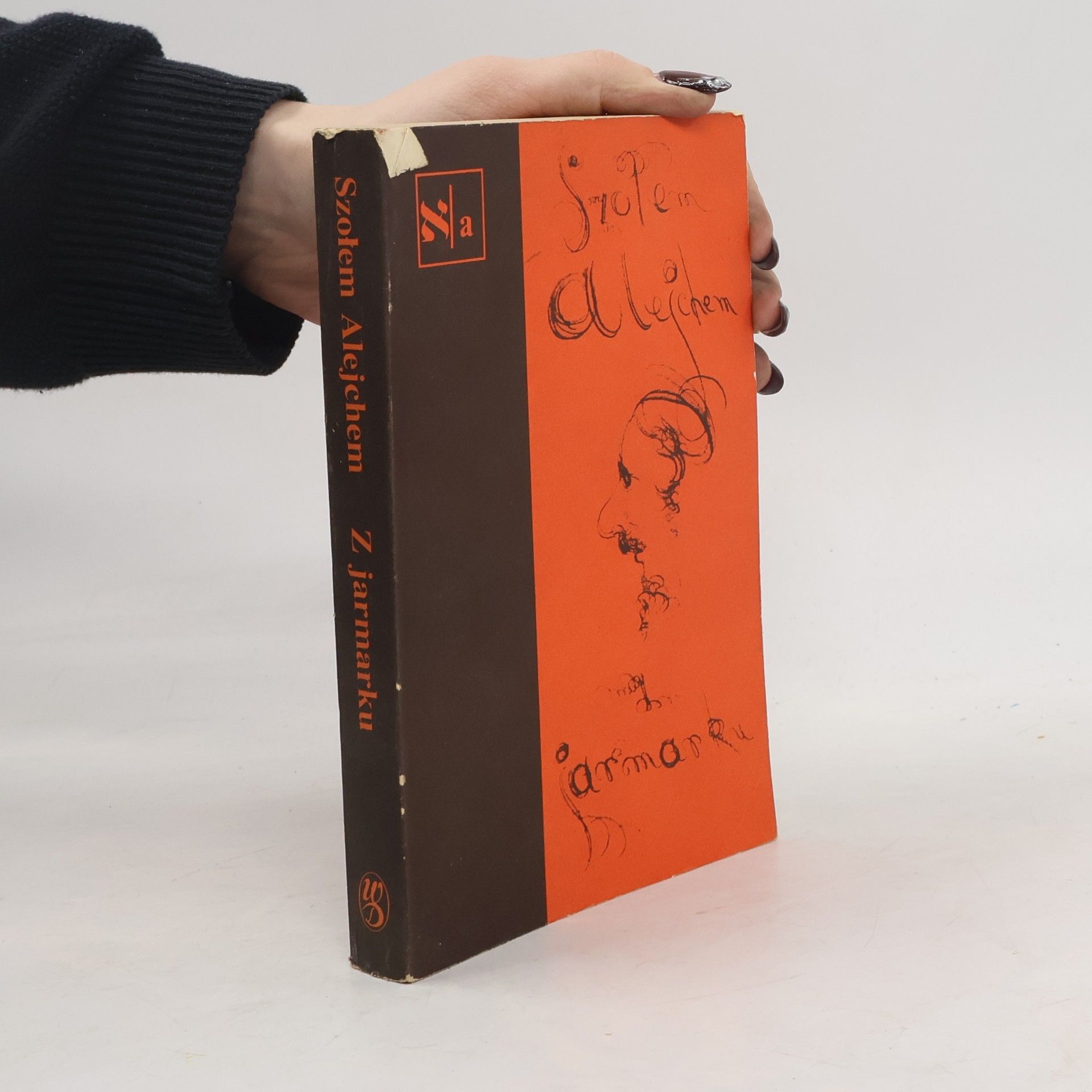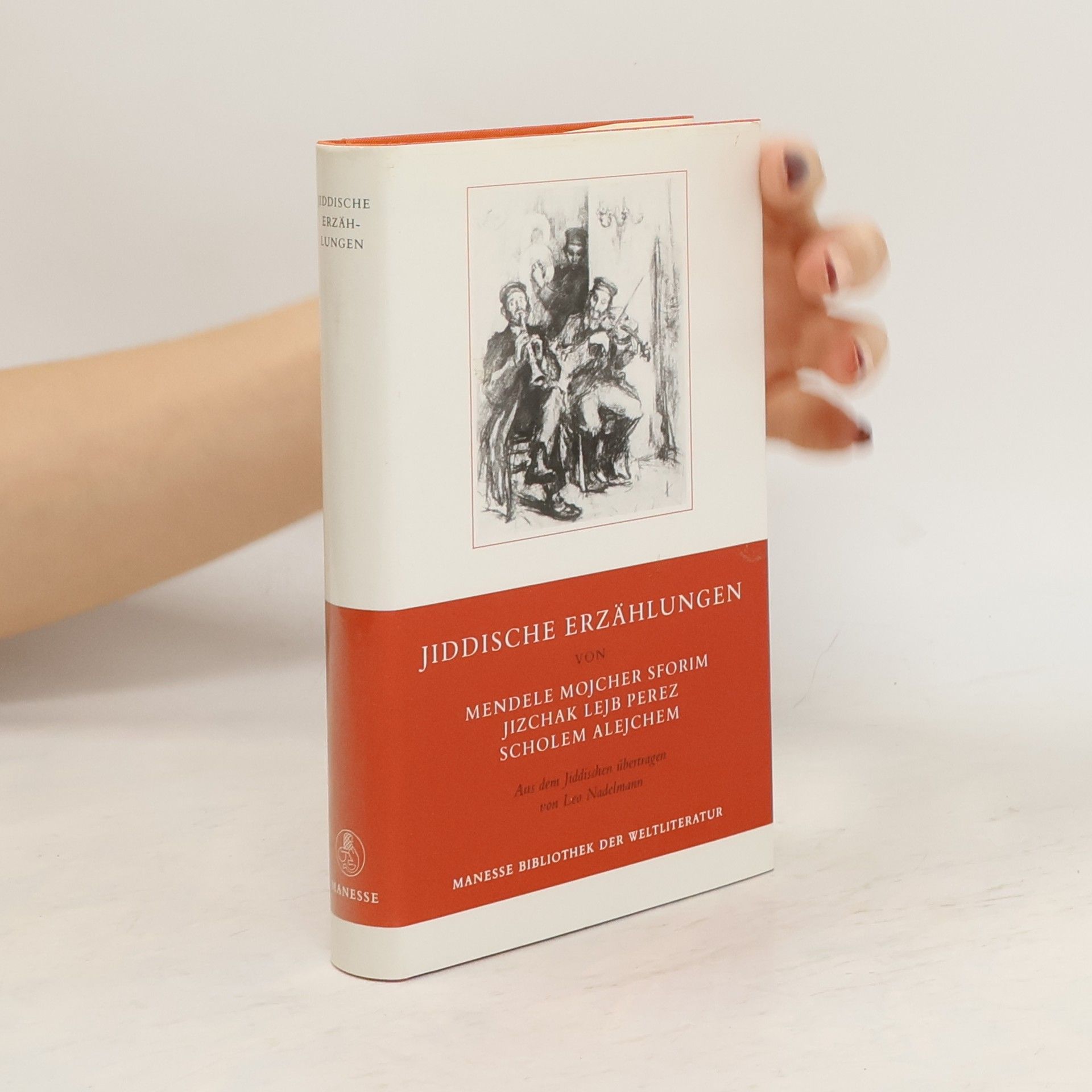7 childrens' tales, from one of the world's greatest writers of Yiddish stories. Centering around the Jewish holidays, stories include "Benny's Luck," about the amazing good fortune of a young boy and his dreydl, and "Really a Sukkah!" a glimpse of a busy holiday celebration that ends less happily than it began.
Scholem Alejchem Books
Sholom Aleichem, writing under the pseudonym Sholom Rabinovich, stands as a central figure in Yiddish literature. His narratives are distinguished by the naturalness of his characters' speech and the accuracy with which he depicted life in the shtetl. While early critics focused on the cheerfulness of his characters as a way of coping with adversity, later critics found a tragic undercurrent in his work. His writing style and use of pen names led to him being called the "Jewish Mark Twain."


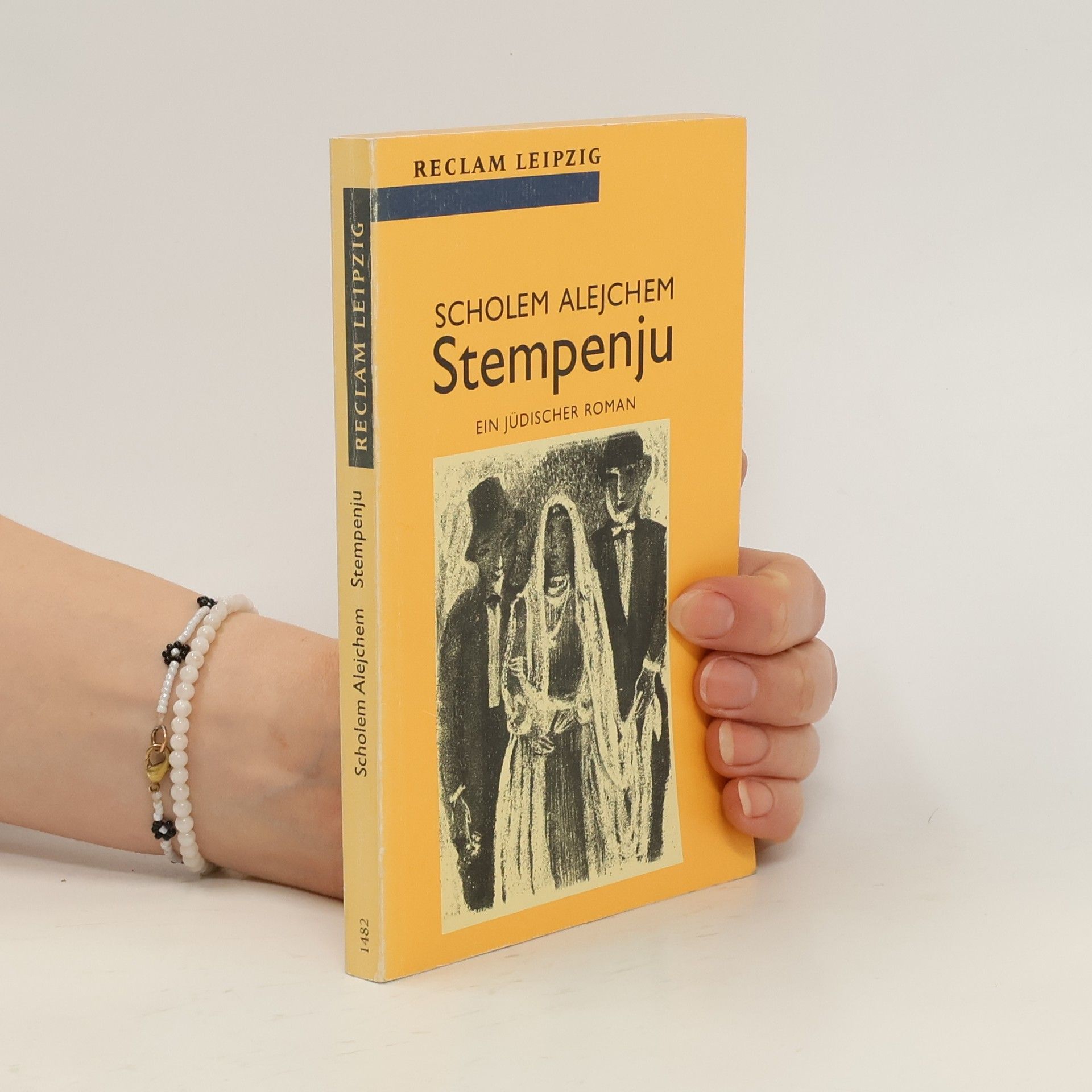

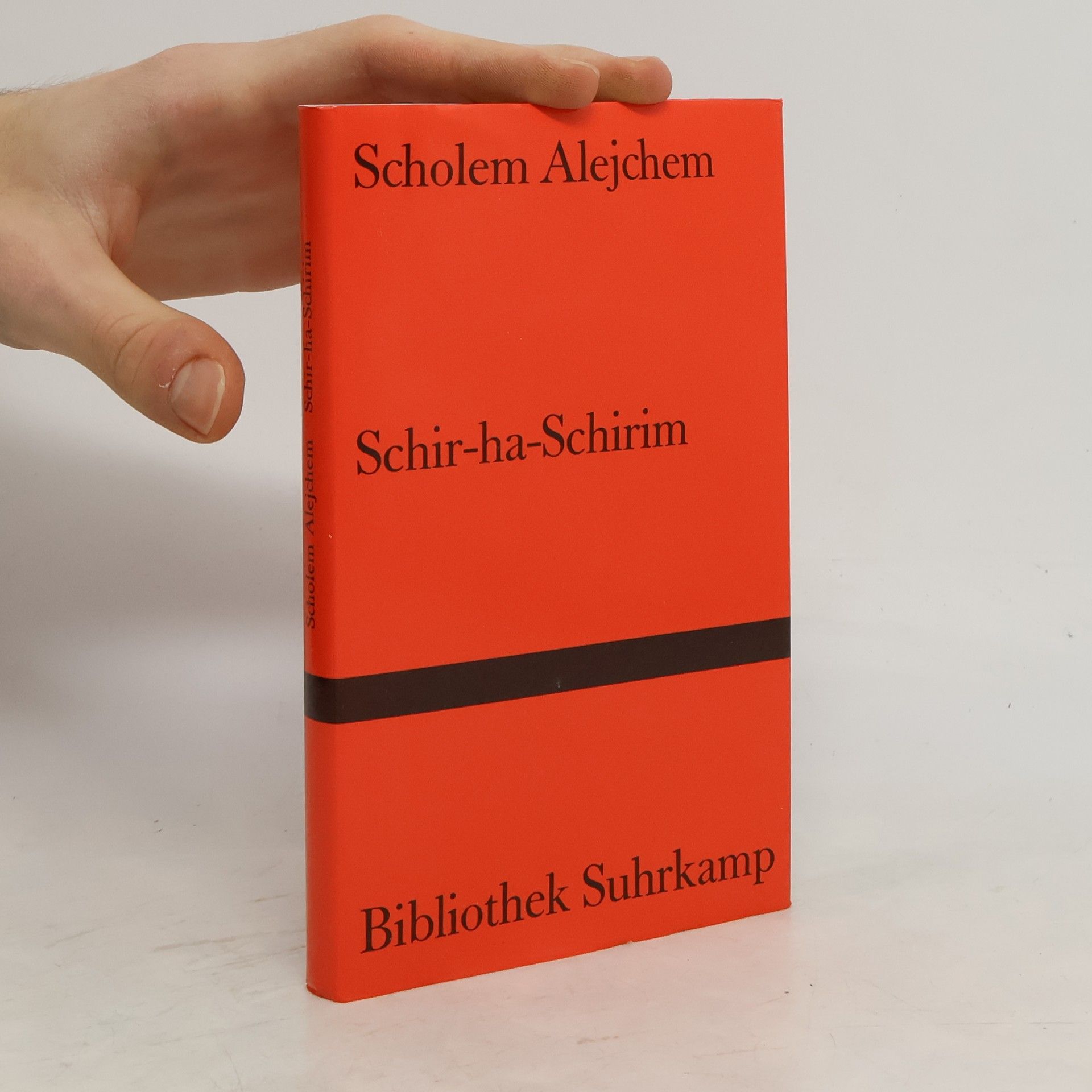
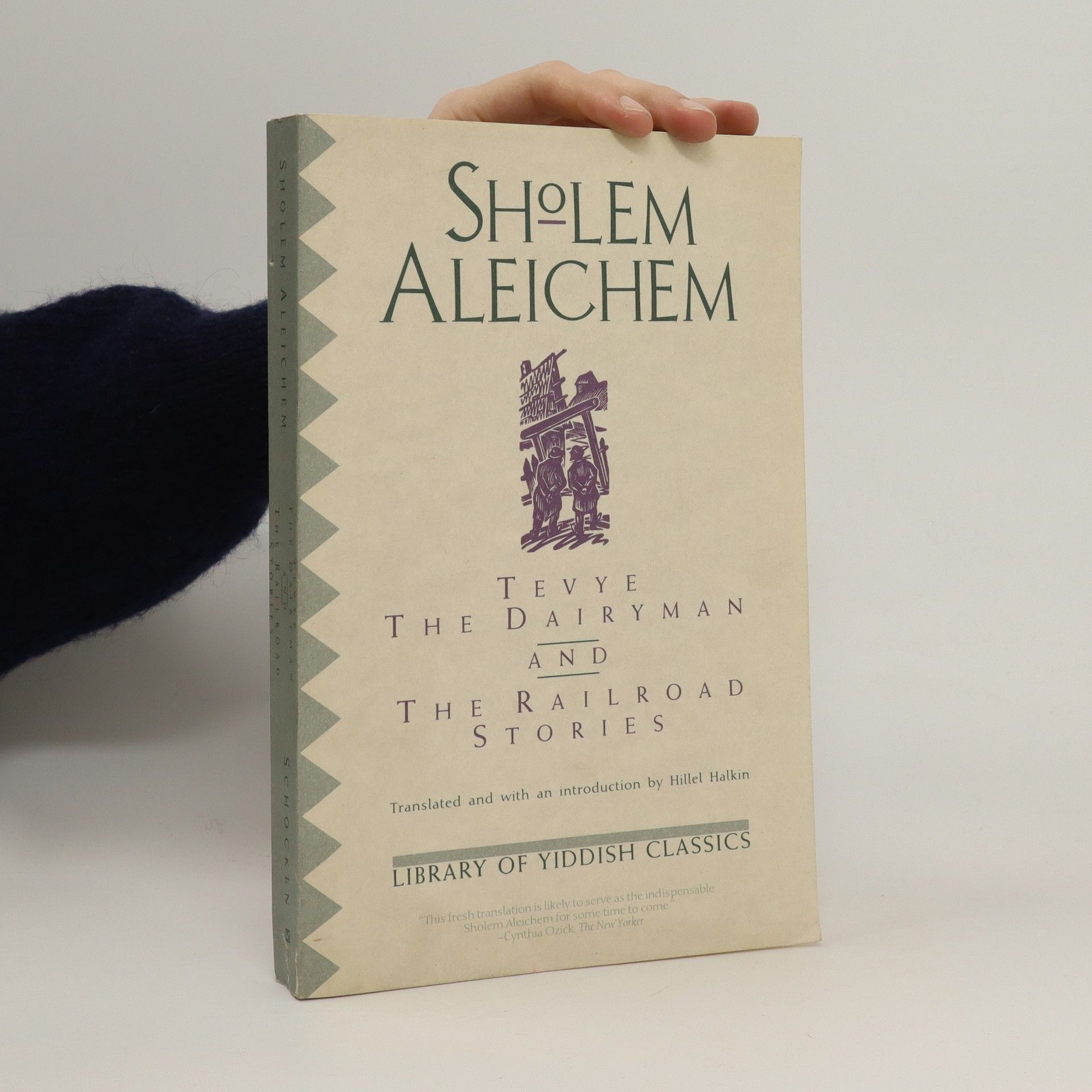
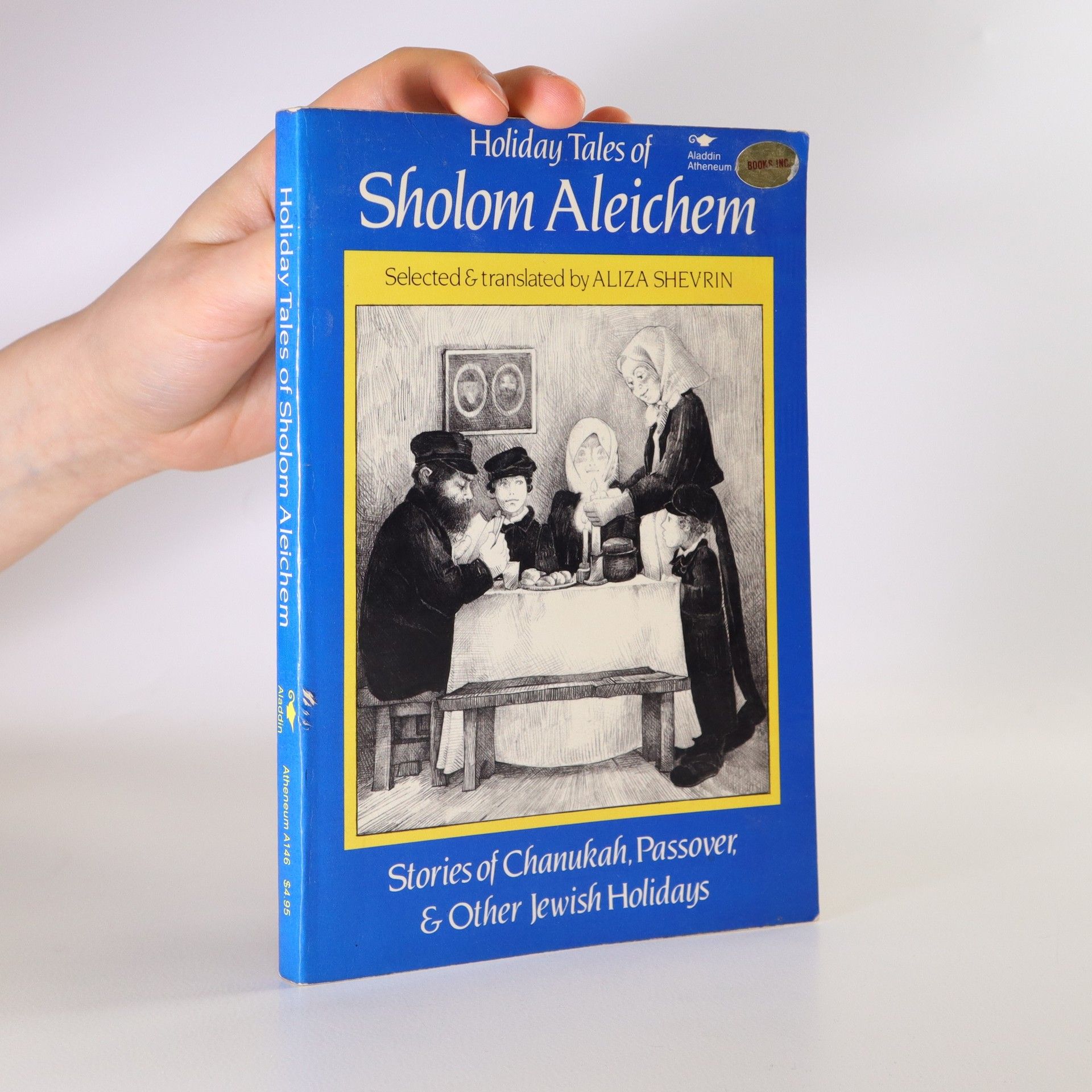
Tevye the Dairyman and The Railroad Stories
- 352 pages
- 13 hours of reading
Of all the characters in modern Jewish fiction, the most beloved is Tevye, the compassionate, irrepressible, Bible-quoting dairyman from Anatevka, who has been immortalized in the writings of Sholem Aleichem and in acclaimed and award-winning theatrical and film adaptations. And no Yiddish writer was more beloved than Tevye’s creator, Sholem Rabinovich (1859–1916), the “Jewish Mark Twain,” who wrote under the pen name of Sholem Aleichem. Beautifully translated by Hillel Halkin, here is Sholem Aleichem’s heartwarming and poignant account of Tevye and his daughters, together with the “Railroad Stories,” twenty-one tales that examine human nature and modernity as they are perceived by men and women riding the trains from shtetl to shtetl.
Bibliothek Suhrkamp: Schir-ha-Schirim
Lied der Lieder. Roman einer Jugend.
- 132 pages
- 5 hours of reading
Relaas van een liefde in een 19e eeuws Russisch ghetto.
Ezgiler Ezgisi
- 124 pages
- 5 hours of reading
Ezgiler Ezgisi, Scholem Alejchem'in Tevrat'ın (Eski Ahit'in) "Neşideler Neşidesi" bölümüne dayanarak yazdığı bir aşk öyküsüdür. Bu öyküde, yazar, Yahudi ve Hıristiyan dinbilimcilerin alegorik yorumlarından uzaklaşarak "Neşideler Neşidesi"nin doğal anlamını kendine çıkış noktası almıştır. Yahudi yorumcular bu metinleri Tanrı'nın halkıyla konuşması, Kilise de İsa'nın halkıyla konuşması olarak yorumlamıştır. Yazar, Ezgiler Ezgisi'nde şarkıların gerçek anlamına, yani erotik anlamına yöneliyor: Busi ile Şimek kardeş gibi büyümüşlerdir; Busi'nin ana-babası yoktur. Bazen oyun oynarken Busi'nin üzüntüsü yüzüne vurur. Bu durum Şimek'in yüreğini parçalar, ona göre Busi dünyanın en güzel prensesidir, Hazreti Süleyman'ın sevgililerinden de güzeldir. Birlikte büyürken sevgilerini de büyütürler. Damdaki Kemancı'nın (Sütçü Tevye) yazarı Scholem Alejchem'in bu kısa romanında, büyük yazarlara özgü derin hümanizma bulunmaktadır. Yazar, romanı basılmadan Newyork'ta öldü (1916). Vasiyetine göre, mezarının başında bu yapıtının bazı bölümleri okundu.Ezgiler Ezgisi'ne esin kaynağı olan, Tevrat'ın "Neşideler Neşidesi" ("Ezgiler Ezgisi") bölümü okurun okuma eylemini boyutlandırmak amacıyla kitabın sonuna eklenmiştir.
Stempenju
- 158 pages
- 6 hours of reading
Geschichten aus Anatevka
- 285 pages
- 10 hours of reading
Geschichten aus Anatevka - bk1285; Ullstein Verlag; Scholem Alejchem; pocket_book; 1992
Z jarmarku
- 388 pages
- 14 hours of reading
Wybitne tłumaczenie Michała Friedmana; książka - wraz z kilkoma innymi znakomitymi pozycjami w tym samym tłumaczeniu - dostępna na: https://wolnelektury.pl/katalog/lektu...
Anatewka
- 276 pages
- 10 hours of reading
Dieses eBook ist mit einem detaillierten Inhaltsverzeichnis ausgestattet und wurde sorgfältig korrekturgelesen. Die Geschichte spielt im Russischen Kaiserreich im ukrainischen Schtetl Anatevka um 1905, wo eine jüdische Gemeinschaft lebt, die Traditionen hochhält. Der Milchmann Tevje lebt mit seiner Frau Golde und ihren fünf Töchtern in bescheidenen Verhältnissen. Trotz der Bedrohung durch Pogrome im zaristischen Russland bewahrt Tevje seinen Lebensmut und Humor. Anatevka ist das bekannte Musical, das auf dem jiddischen Roman "Tewje, der Milchmann" von Scholem Alejchem basiert. Alejchem (1859-1916) zählt zu den bedeutendsten jiddischsprachigen Schriftstellern und wird als dritter Klassiker der jiddischen Literatur angesehen. Er wurde auch der jüdische Mark Twain genannt und schilderte das Leben jüdischer Einwanderer in den USA sowie das Alltagsleben der Juden in Osteuropa um die Jahrhundertwende. Seine Werke sind geprägt von Humor und Satire. Aus dem Buch: »Ihr redet wie ein Verrückter«, sagen sie. »Ihr seid wohl gar nicht recht bei Sinnen! Was erzählt Ihr uns für lange Geschichten, Märchen aus Tausendundeiner Nacht? Wir haben keine Kraft mehr, die Beine zu bewegen, wir haben heute den ganzen Tag außer einem Glas Kaffee und einer Buttersemmel nichts im Munde gehabt, und da kommt Ihr und erzählt uns solche Geschichten!«
Jiddische Erzählungen
- 432 pages
- 16 hours of reading

